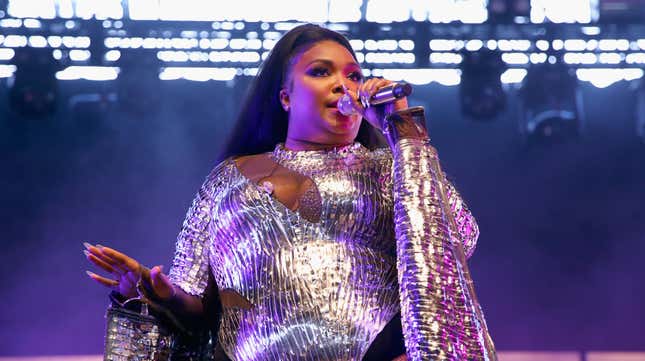Pigeonholing Lizzo's 'Body Positivity' Says More About Everyone Else Than Her Art
EntertainmentMusic

At no point on her major-label debut, Cuz I Love You, does Lizzo ever express rage. The closest she comes is “Jerome,” a song about “fuccboi love,” as the rapper-singer-flutist explained, and what it’s like to fuck a loser and only half-regret it: “I never said that you wasn’t attractive,” she concedes. Along with a few burns, there’s also an admission of real pain, in what’s essentially an inspirational breakup song. This is what Lizzo does best on Cuz I Love You: mapping the highs and lows (but mostly the highs) of being a sexy, confident women who knows what she wants.
Whether she’s reflecting on her old hoe ways (the title track), dreaming of a pansexual future (“Better In Color”), or waiting for her lover to “make [her] crescendo” (“Lingerie”), sex positivity radiates across the album. But the one thing critics have fixated on—body positivity—is notably absent.
-

-

-

-

-

-

-

-

-

-

-

-

-

-

-

-

-

-

-

-

-

-

-

-

-

-

-

-

-

-

-

-

-

-

-

-

-

-

-

-








































